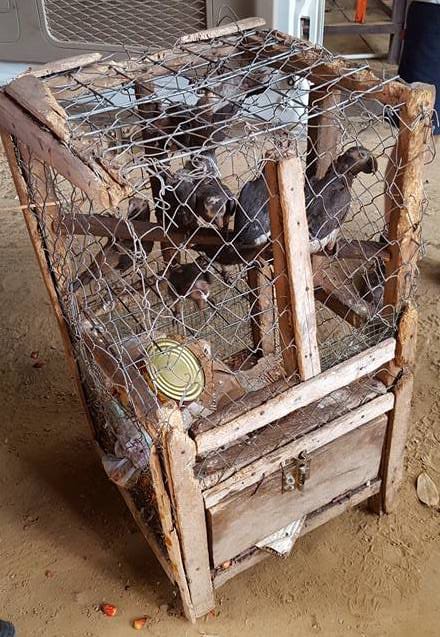Last month two seizures of wild Timneh parrots in illegal trade were made in Liberia and taken to a purpose-built facility at Libassa Wildlife Sanctuary. The birds have responded well to emergency medical treatment and are already showing signs of recovery after their stressful ordeal, according to sanctuary manager Julie Vanassche. Following rehabilitation, it is hoped that these parrots can be released back into the wild.
The seizures represent the culmination of efforts by WPT, Libassa Wildlife Sanctuary, the Society for the Conservation of Nature in Liberia (SCNL) and the Forestry Development Authority of Liberia to improve capacity for the enforcement of wildlife trade laws in Liberia. WPT supporters helped fund the construction of a special facility for caring for parrots and WPT staff provided technical expertise to sanctuary staff. The facility not only ensures parrots get the care they need but provides vital support for enforcement authorities so they can get on with the job of stopping the devastating trade.
Timneh parrots, a focus of WPT’s Africa programme, were recently uplisted to Endangered on the IUCN Red List due to concerns over the impact of trade and forest loss (see previous posts). The seizures follow the transfer of Timneh parrots (and closely related Grey parrots) to Appendix I of CITES, prohibiting all international trade in the species. Greater enforcement is vital for dismantling trade networks which feed large numbers of parrots to the international market.
Elsewhere in Africa, investigations by Project SALF (part of the EAGLE network) in Senegal, have led to the seizure of over 500 wild birds destined for export to Spain, among them 30 Senegal parrots. In the Republic of Congo, over 100 Grey parrots have been seized in the last month and are being cared for by veterinary staff with the Wildlife Conservation Society. The Grey parrots were trapped by poachers from neighbouring DRC operating illegally in Congo. Trappers report selling parrots to businessmen in Kinshasa from where they enter the international market. Such movements highlight the need for coordinated action to implement the CITES Convention between countries which share borders.
For further reading follow these links
http://wcscongoblog.org/2017/01/29/over-100-african-grey-parrots-seized-in-northern-congo/


